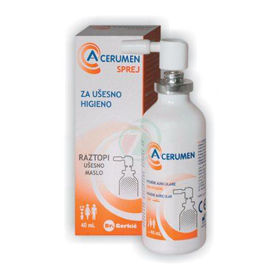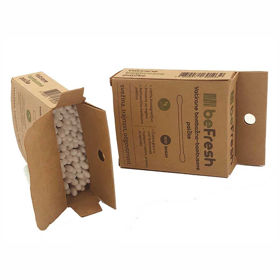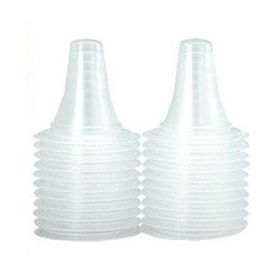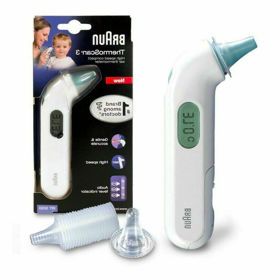Customer question:
How to unclog a plug in the ear? Anonymous customer's question
Pharmacist's answer:
If you have blocked ears, try swallowing, yawning, or chewing gum to open the Eustachian tubes. If that doesn't work, take a deep breath and gently blow your nose while closing your nostrils and keeping your mouth closed. If you hear a pop, you know you've made it.
Other options for unclogging your ears include:
- nasal decongestants
- topical nasal steroids
- ventilation pipes
Can unclogging your ears be dangerous?
The pressure you blow against forces your Eustachian tubes to open slightly, which drains the pressure and fluid trapped in the ear. A common misconception is that this method is dangerous. If you don't push too hard or sneeze this way, there's no risk of a burst eardrum. However, ringing in the ears can be uncomfortable for some, and it makes sense to investigate ear blockage if other, more severe symptoms accompany it.
What causes blocked ears?
Common causes of blocked ears include altitude or atmospheric pressure changes, allergies, colds, Eustachian tube dysfunction, ear infections, and fluid, foreign bodies, or earwax blocking the Eustachian tube. Most of the time, these problems are easily diagnosed and treated.
Can blocked ears be dangerous?
Although blocked ears are an unpleasant phenomenon, they are usually not dangerous. Nevertheless, it is imperative to call your doctor if you experience symptoms such as ear pain, dizziness, or hearing loss. Some people produce more earwax than others and may need routine treatment to remove it.
Can ear washing be dangerous?
Do not do ear washing (either at home or in a doctor's office) if you have a damaged eardrum, tubes in your ears, or a condition that weakens your immune system. You should also not rinse your ears if you have an active ear canal infection.
Otitis externa is a common complication that can occur when washing the ears. This is an inflammation of the ear canal that an infection can cause. Another possible complication is otitis media, which can result from an infection. Ear inflammation is one of the most common complications of ear washing.
Perforated eardrums are another possible complication of ear irrigation. In some cases, ear washing will press on the earwax and compress it more, making it harder to remove and can put more pressure on the eardrum, increasing the risk of perforation.
Interesting reading: How to unclog your ear
Interesting reading: Cleansing earwax












 Facebook
Facebook
 Instagram
Instagram
 info@moja-lekarna.com
info@moja-lekarna.com

